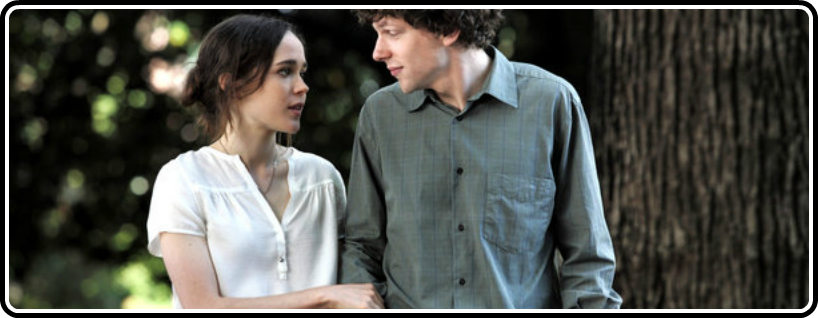Another year, another Woody Allen film. However true that statement has been over the past handful of decades, very few films in his canon have been as eagerly anticipated as his latest, To Rome With Love. Yes, there is a to-die-for cast. Yes, there is a stunningly beautiful locale Yes, there is a load of comical self-loathing and neuroses. However, with his hit-and-miss (at best) track record in the past two decades and change, following up as brilliant a film as Allen’s 2011 piece, Midnight In Paris, was, is a tall order.
Thankfully, Allen’s continual appreciation for foreign landscapes has seemed to give him a brand new lease on cinematic life, even in spite of this film’s handful of issues.
Following the story of various people housed within Rome, With Love is yet another in a long line of Allen’s attempt at multi-narrative storylines, featuring a cavalcade of couples and their existential crises ranging from finding romance outside of the person you are currently with, or what it means to be famous (if that’s even a ‘thing’ anymore, in today’s day of ‘famous for being famous,’ which is definitely on Allen’s mind here). Featuring a killer cast including Allen himself in a bloody brilliant and much welcome return in front of the camera, as well as Alec Baldwin, Penelope Cruz, the threesome of seemingly Allen-bred children in Greta Gerwig, Jesse Eisenberg and Ellen Page, and finally, in another huge return Roberto Benigni, this is both a great Allen feature film as well as being one of his most polarizing.
As a Woody Allen feature, it’s his side of the project that is easily the most intriguing. Aesthetically, Allen in his millions of years of filmmaking, hasn’t lost a step. Visually quite gorgeous, he has an unabashed love for the visual side of Rome, be it the ruins, or how they aesthetically clash with what is such congested yet rustic urban landscapes. Rarely finding our characters inside of a moving vehicle, the man who may have invented the ‘walking and talking’ that is seen in nearly every film or Sorkin-penned television series today. Making stylistic love to Rome with his camera, Woody’s mood is light and airy, almost Stardust Memories-like in its tone, something that can also be seen in nearly the entirety of Allen’s recent output save for maybe Barcelona or the underrated and forgotten Cassandra’s Dream. And for some, at least one storyline entirely, of this film Allen appears to be on an entirely new level, not seen since Manhattan.
Intellectually, the film is a mixed bag. Rome follows a handful of arcs, four to be exact, with, like any vignette film, some just don’t work. Alec Baldwin, Gerwig, Eisenberg and Page standout as not only Allen’s strongest characters for this specific film, but some of Allen’s greatest characters in years. Baldwin plays a famous architect who may or may not be a fairy god-father like conscience for Eisenberg’s aspiring building designer, and their relationship is something to truly behold. The pair have a great sense of almost father-son like chemistry, and their quarter of the film also shines as being the most insightful on one of Allen’s most beloved subjects, male and female relationships. Gerwig and Page are also fantastic, with Gerwig standing in for Allen arguably more so than Eisenberg, an actor who seems to have fallen right out of the Alvy Singer family tree. To Allen, men are truly carnal creatures, inspired by the enigmatic, and despite obvious posturing by the female in question, intrigue may very well be the greatest aphrodisiac.
Allen is refreshing to see back on the big screen , and his father role is really great. It does truly play as any of Allen’s previous characters, just now with some age under their belts, but his relationship with his wife and in particular his daughter, played by Allison Pill, is top-tier. His narrative involves a man who must deal with constant doubting by his family, and himself, about the truly beautiful voice he has is really enjoyable. A meta look at the fact that, in many ways, Allen’s early films were truly ahead of their time (as cliché as that is to say), the short features some really emotionally uncomfortable and some truly heart breaking and affecting moments. The film could have stood to be these two, and nothing more.
However, that’s not the case. Penelope Cruz stars in a short vignette, and it’s nearly unbearable. Following a recently married couple who find themselves with two different people for a day of extra-marital love-making only to fall even more in love in an oddly comedic comedy of errors, the sequence is visually fine, and Cruz is as charismatic and enthralling as ever, but the sequence tonally doesn’t fit, and stylistically doesn’t do much to impress. However, it’s ot the film’s weakest sequence, as that honor goes to Benigni’s portion. Playing an average Joe who finds himself famous just for being famous, the sequence finds a sadly stone faced Benigni’s lacking in the charisma that made him so damn loveable, and also finds Allen at his most ham-fisted and most blunt. A topic that is as new as anything Allen’s ever touched on, he doesn’t seem to have the same subtle comedic hand that he’s had with his other go-to sources of philosophizing. Tonally out-of-place, this sequence is, save for Allen’s great filmmaking, almost unwatchable.
Overall, while it’s half a masterpiece and half a direction-saved slog, To Rome With Love is a welcome addition to Allen’s ever-growing filmography. Featuring some of 2012’s best supporting performances (led by Eisenberg, a man who should become Allen’s muse going forward, if there is anything right in this world), Rome may not be as superb and exciting as his latest film, but Allen’s love letter to the city is one of the most enjoyable viewing experiences of this year, now roughly half over.




